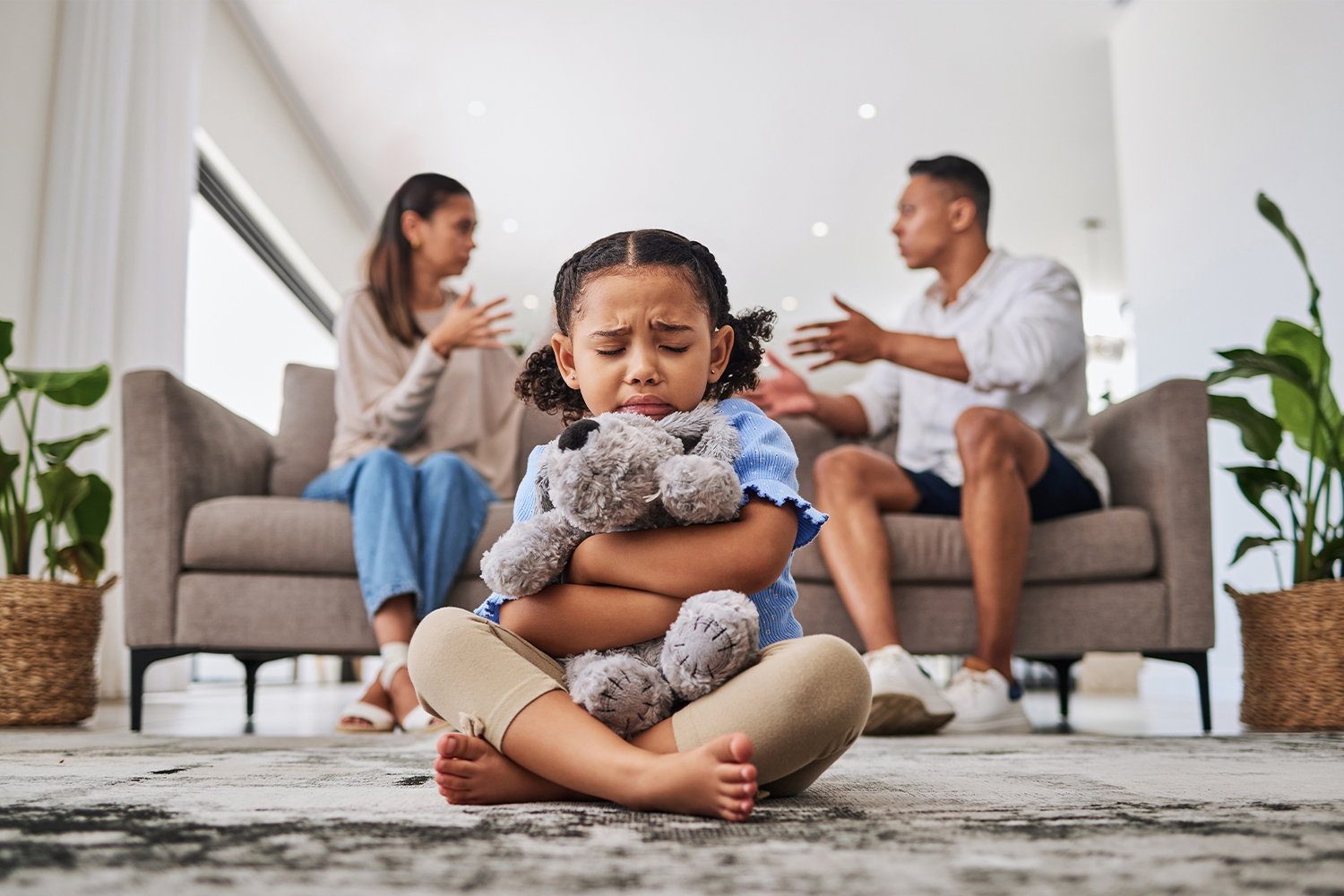Helping Your Child Through Your Divorce
Maddie McGarrah, M.Ed.

Divorce can be an emotionally overwhelming experience for everyone involved, but for children, it can be especially confusing and painful. As parents, you may worry about how the separation will affect your children and what you can do to support them during this difficult time. While every child reacts differently, there are general strategies that can help them navigate through the emotional complexities of divorce.
1. Be Honest, But Age Appropriate
Children need to understand what is happening, but how you explain it should depend on their age and maturity. Younger children might not fully comprehend the concept of divorce but can still sense that something is wrong. In this case, using simple language is best. Older children and teens may have more questions and may want to know the reasons behind the divorce. Be honest, but avoid placing blame or sharing too many adult details that could confuse or stress them out. You could say something like, “We’ve had a lot of disagreements we couldn’t work through, but we both want to make sure you’re okay.”
2. Reassure Them of Your Love
One of the most important things you can do during a divorce is to reassure your children that they are loved and that the divorce is not their fault. Children often internalize the separation and may believe they somehow caused the divorce. Reassure them regularly that they are not to blame and that both parents will continue to love and care for them.
3. Don’t fight in front of them.
Research shows that the worst thing for kids is seeing their parents fight with each other. The main thing to avoid is “expressed affect,” which essentially means yelling and screaming. If kids don’t witness their parents yelling at each other, they cope much better with the situation. The biggest factor that leads to negative outcomes for children of divorce is chronic and prolonged exposure to parental conflict or parental alienation.
4. Give them access to both of you.
Another thing that’s bad for kids is losing contact with, or access to, one of the parents. It’s crucial to ensure that, during the initial conflict and throughout the years, your kids have the ability to stay in contact with and see both parents when possible.
5. Don’t make them choose/put them in the middle
While it might be tempting to use your child to communicate with your ex-spouse, doing so can put unnecessary pressure on them. It can make them feel like they are caught in the middle or even cause them to feel like they have to take sides. Keep communication between you and your ex-spouse separate, and don’t involve your child in adult issues.
6. Don’t confide in them.
Protecting your children from conflict means keeping the details of the divorce process between you and your ex-spouse. Even if you feel wronged by the court or the opposing attorney, it’s important not to share those frustrations with your kids. The goal is to keep them as far removed from the legal battle as possible.
7. Encourage Open Communication & Be Mindful of Your Own Emotions
Make sure your child knows they can talk to you about their feelings, fears, or confusion. Sometimes children hold back because they worry about upsetting their parents. Encourage them to express themselves in a safe and non-judgmental environment. Be an active listener, validate their feelings, and avoid minimizing or dismissing their emotions.
Children are very perceptive and can pick up on the emotions of the adults around them. While it’s okay to feel sad, angry, or frustrated, try to avoid expressing these feelings in front of your children, especially if they involve negative comments about the other parent. Children need to feel safe and loved by both parents, and speaking poorly about the other parent can create unnecessary stress and emotional strain.
8. Be Patient
Healing takes time. Just as you are adjusting to the changes brought by the divorce, so is your child. They may have moments when they act out or seem withdrawn, and this is normal. Allow them the time and space to process their emotions, and be patient with their needs.
9. Maintain a Consistent Routine
Stability is key when it comes to helping children feel secure during a divorce. Keep as many things in their routine the same as possible—whether it’s their school schedule, extracurricular activities, or bedtime routine. Children find comfort in familiarity, and having a predictable environment can help reduce anxiety and confusion during a time of change. If changes need to occur, like splitting time between two households, try to make the transition as smooth as possible by giving them a heads-up and allowing them to ask questions or voice concerns.
10. Think of what’s fair to the kids, not to you.
Remember, you were likely both good parents before the divorce process began. During this time, you might start noticing small issues with each other’s parenting, but many of those don’t really matter. In a divorce, parents often focus on what seems fair to them, feeling that they have been wronged in some way. However, the reality is that what feels fair to a parent isn’t always what’s best for the child. The key is to focus on what’s best for the kids, not what feels fair to you.



